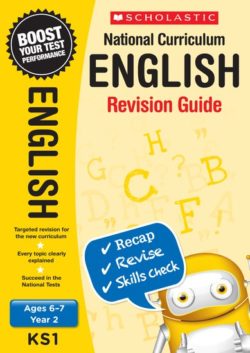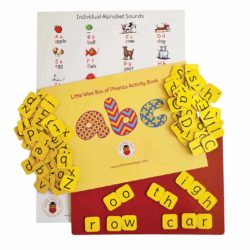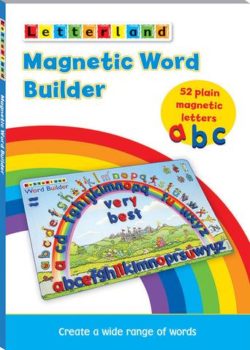No products in the cart.
Literacy Toys
Spelling, Punctuation & Grammar
Spelling, Punctuation & Grammar – Books and Resources
FILTER
Age
- 1
- 2
- 3
- 4
- 5
- 6
- 7
- 8
- 9
- 10
- 11
- 12+
Product Type
- Accessories
- Arts & Crafts
- Books
- Flashcards & Wipe-Clean
- Games
- Jigsaws & Puzzles
- Learning Resources
- Toys
Stage
- Babies
- Early Years
- Primary KS1
- Primary KS2
- Toddlers
Skill
- Communication Skills
- Creativity
- Discovering the World
- Fine Motor Skills
- Health & Self-care
- Imagination
- Independent Learning
- Languages
- Listening
- Literacy
- Managing Feelings
- Mathematical Skills
- Memory
- Mindfulness
- Observational Skills
- Physical Development
- Problem Solving
- Reading
- Scientific Skills
- Self-assessment
- Self-confidence
- Social Skills
- Speaking
- Thinking Skills
- Understanding
- Writing
Areas of Learning
- Arts and Design
- Communication & Language
- Literacy
- Mathematics
- Personal, Social & Emotional Development
- Physical Development & Fine Motor Skills
- Understanding the World
Subject
- Arts and Design
- Design & Technology (DT)
- English
- Geography
- History
- ICT
- Languages (MFL)
- Mathematics
- Physical Education (PE)
- Science
Languages
- Arabic
- Bilingual
- English
- French
- German
- Mandarin Chinese
- Polish
- Russian
- Spanish
- Welsh
Brand
- 25th Century Games
- 4M
- Abrams Books
- Action Phase Games
- Alderac Entertainment Group
- Alley Cat Games
- Amazing Tales
- Andersen Press
- Andrew Brodie Publications
- Arcane Tinmen
- Arcane Wonders
- Ares Games
- Asmodee Editions
- Atlas Games
- Atomic Mass Games
- Awaken Realms
- b small publishing
- Baby Einstein
- Bandai
- Barefoot Books
- Barrington Stoke
- Battlefront Miniatures
- Beehive Toys
- Bezier Games
- Bezzerwizzer
- Big G Creative
- Big Sky Games
- BigJigs Toys
- Blackrock Editions
- Bloomsbury
- Blue Cocker Games
- Blue Orange
- Board And Dice
- Board Game Hub
- Bombyx
- Boxer Books
- BrainBox
- Brother Wize Games
- Bushiroad
- Buster Books
- Cambridge Brainbox
- Candylab
- Capstone Games
- Catan Studios
- Cephalofair Games
- Cheapass Games
- Chessex
- Chronicle Books
- Cicada
- Cool Mini Or Not Inc
- Curiscope
- CWR
- Dantoy
- Didicar
- DK
- DT
- EDU-QI
- EDUPLAY
- Edx Education
- Egmont
- Emaan Productions
- Faber & Faber
- Fat Brain Toys
- Fine Feather Press
- Flying Eye
- Galison Mudpuppy
- Galt Toys
- Gamelyn Games
- Gamewright
- Gecko Press
- GeoSmart
- Gigamic
- GoGo
- Gowi Toys
- Graffeg
- Great Gizmos
- Green Toys
- HABA
- Hape
- Happy Cube
- Hinkler Books
- Horrible Games
- Ivy Kids
- Jar Meló
- Klutz
- Knowledge Builder
- Kumon Publishing
- Lanka Kade
- LeapFrog
- Learning Resources
- Lerner
- Letterland
- Lexie Mouse Publishing
- Lincoln Children's Books
- Little Island
- Little Tiger
- Little Wise Toys
- LOM Art
- Lonely Planet
- Lottie
- Mad Mattr
- Magic Cat
- Make It Real
- Mary Meyer
- masterkidz
- Melissa & Doug
- Michael O'Mara
- MindWare
- Mobilo
- MOLUK
- Moondance Press
- Morphun
- nanoblock
- Nebulous Stars
- Nosy Crow
- Orchard Toys
- Otter-Barry Books
- Page Street Publishing
- Paul Lamond
- Pavilion
- Petit Collage
- Plan Toys
- Playcolor
- Playmobil
- Poptacular
- Primo
- Princeton Architectural Press
- QED
- Quercetti
- Raintree
- Renegade Game Studio
- Rubbabu
- Rubik's
- Santoys
- Sassi
- Scallywag
- Schofield & Sims
- Scholastic
- Scrunch
- Shade 7 Publishing
- Shaw Magnets
- Skillmatics
- Skip Hop
- Smart Games
- Smartivity
- SmartMax
- Sourcebooks
- Storey Publishing
- Tactic
- Tate Publishing
- The Green Board Games Co
- The Puppet Company
- TickIT
- Tidlo
- Top Class
- Twirl Publishing
- Usborne
- Verdes Innovations
- Viga
- Walker Books
- Welbeck
- What on Earth
- Wide Eyed Editions
- Wilberry
- Wiz Kids LLC
- words & pictures
- WordUnited
- Workman Publishing
- Yoyo Books
- Z-Man
- ZooBooKoo
Stock status
- In Stock
- Out of Stock
Showing 1–12 of 85 results
-


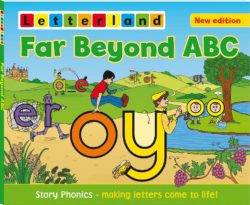

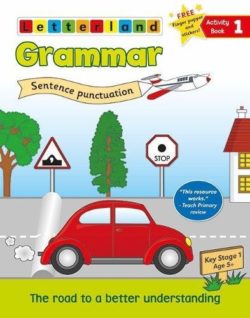

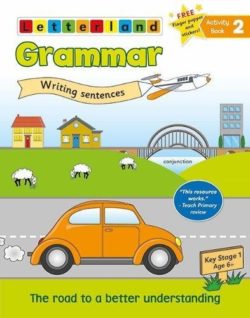

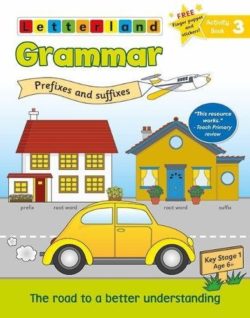

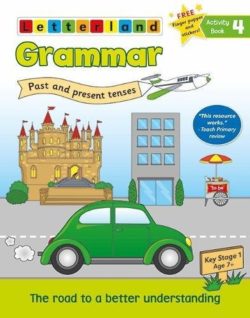

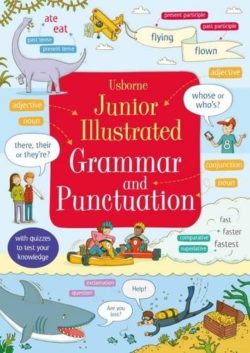

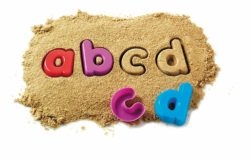

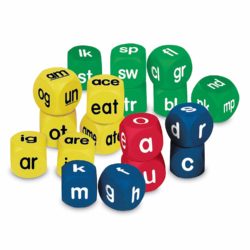

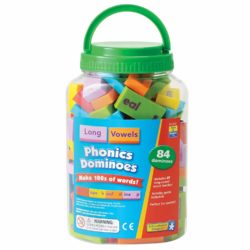
Spelling, Punctuation and Grammar Books & Toys
Writing accurately is an invaluable skill. Successful writers require the ability to draw on a wide range of vocabulary, spell words correctly and punctuate well. They also need to understand the implication of primary resources grammatical terms such as noun, adjective, verb, adverb, prefix, and pronoun. Young writers also need to learn to use these grammatical terms. This jargon can be tricky even for children who are otherwise good at reading and writing and make the questions hard to understand. There is a wide range of primary school English resources that you can use to help your child along their literacy journey.
There are many strategies that you can use to increase your child’s literacy skills. These include spelling games, grammar games, literacy worksheets, literacy toys. Spelling can be an enjoyable activity for the whole class, and every student should be comfortable with it. This will positively influence other areas of literacy, such as writing and speaking. Some students may find spelling activities to be difficult and rather dull. This is a common trait in most reluctant readers. These types of readers need more effort to keep them engaged.
Spelling Games
Spelling requires lots of practice, and there are no short cuts. Parents and teachers should involve learners in spelling games and activities. These activities can either be carried out at home or at school. There are research methods that encourage young readers to practise spelling in a fun and engaging way. One activity that has been around for a long time is the I Spy game. How this goes is that the teacher or parent starts by saying “I spy with my little eye something that starts with C”, for example. Now the learners will try and name the object beginning with C. this maybe “cup” for example. ‘I Spy’ really fulfils what a spelling game should be. It is fun and engaging. It also gives learners the chance to participate and provide multiple answers. This game is ideal for spelling games KS1 activities
More games can help learners improve their spelling. Some examples include Alphabet Letters Spell Race and Spelling Bees. All these games aim to assist learners in developing their spelling in a fun and interactive way. The literacy level of the learners determines the complexity of the games played. More primary teaching resources and other spelling games KS2 are available online.
Spelling Games keep learners more involved than regular lessons. They stimulate learners’ minds and imaginations in a highly interactive way. Most spelling games require learners to make use of their spelling skills to contend against other learners. Games bring excitement to the classroom and flush out dry memorisation exercises. Memorisation does have its place in the learning experience, but, games are an innovative way to tackle tricky subjects.
Grammar Games
The purpose of grammar games is to allow learners to explore all the parts of speech, such as nouns, verbs, and adjectives. All this conducted in a fun environment makes the subject matter more understandable. Learning grammar is primarily brushed off as unimportant. In reality, proper grammar enables learners to communicate effectively. Incorrect grammar forms meaningless sentences resulting in unclear or incorrect messages being delivered. This defeats the whole purpose of communication. Mastery of grammar gives a healthier self-image. Listening and reading become much more natural, and the entire communication process becomes delightful.
Teaching children grammar gives them the power to express themselves. However, such a tedious subject requires an innovative approach. Thankfully, there are many primary teaching resources available to teach grammar effectively. Learners can also participate in enjoyable grammar games. These games guide learners at all levels on how to breakdown complex sentences into parts. Another primary source which used in teaching is the English grammar book. Grammar books show the rules that makeup language and teaches readers how to use those rules.
Punctuation
Punctuation refers to the marks utilised when writing. The purpose of these marks is to separate elements of sentences and to elucidate meaning. Punctuation marks organise text and give sentences structure. This is a fundamental part of learning literacy. Some strategies have been developed to help teachers when dealing with punctuation. An easy way is to pace your reading and change voices to reflect the punctuation marks. This method also improves fluency and overall comprehension. Various primary school resources are used to teach punctuation. There are KS2 English worksheets, activities, and games that help learners understand punctuation. Punctuation worksheets teach everything from periods to quotation marks.
The marks and symbols used in punctuation are relatively small and sometimes can even go unnoticed, but their impact is profound. A misplaced period can give a whole new meaning to primary resources text. In the same way, a correctly placed comma can turn a piece of writing into poetic brilliance. Punctuation brings out the sense and the underlying theme in the text. It emphasises the main idea in the text while casting an elegant shadow on the rest. Once learners attain this skill, it will serve them well into their work lives.



 01782 698558
01782 698558


